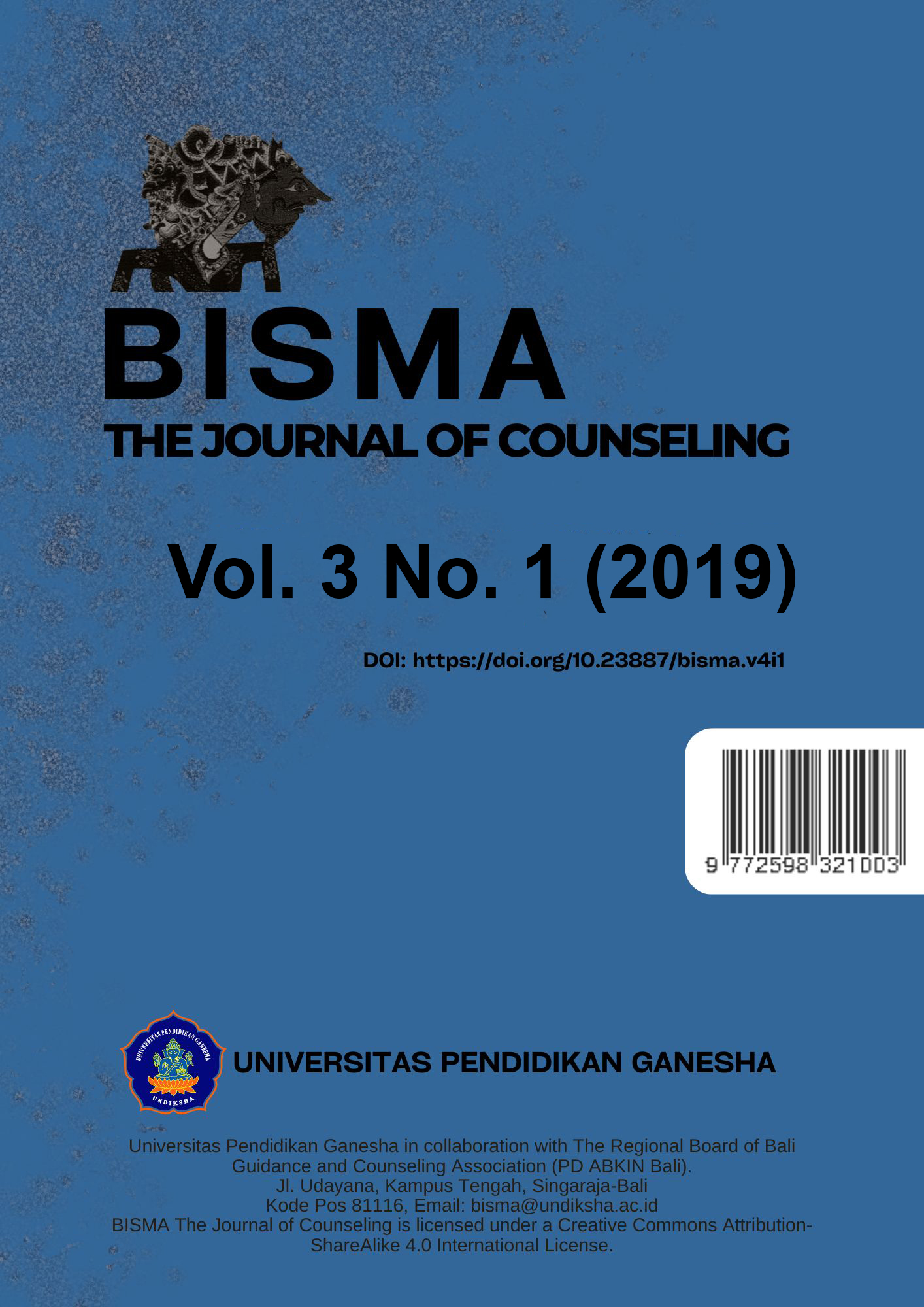The Effectiveness Of The Transactional Analysis With Role Playing Technique In Setting Lesson Study To Improve Self-Affiliation Of Students Grade One In SMA Laboratorium Undiksha Singaraja
DOI:
https://doi.org/10.23887/bisma.v3i1.18348Abstract
This study aims to determine the effectiveness of transactional analysis counseling with role playing techniques in lesson study settings to improve the self-affiliation of first-level students at Singaraja Undiksha High School. This experimental study used pretest posttest control group design. The study population was first-level students at Singaraja Undiksha High School, Buleleng, Bali. The study sample consisted of 46 students. Through random sampling techniques, 23 students were placed in the experimental group who received a treatment model of transactional analysis counseling with role playing techniques and 23 students were the control group. The results of the study showed that there were differences in the affiliation of the experimental group students after following the treatment with the control group affiliation at t = 8.336 p> 0.05. The effect size (ES) test through d’Cohen also shows the high level of effectiveness of the transactional analysis counseling model (ES = 2,468). These results prove that transactional analysis counseling with role playing techniques is effective for increasing the affiliation of first-level students at Singaraja Undiksha High School.Downloads
Published
2019-09-03
Issue
Section
Articles









